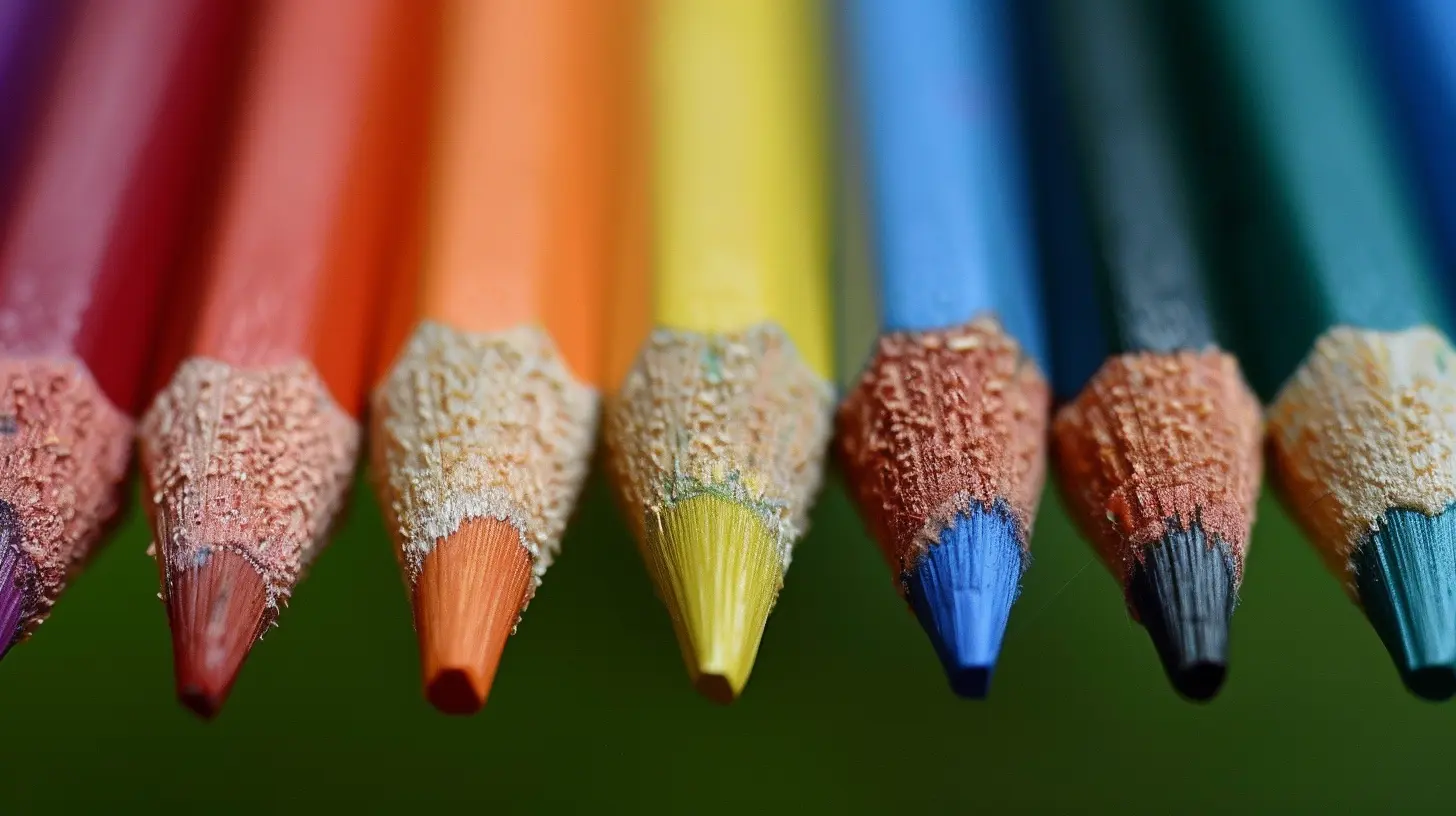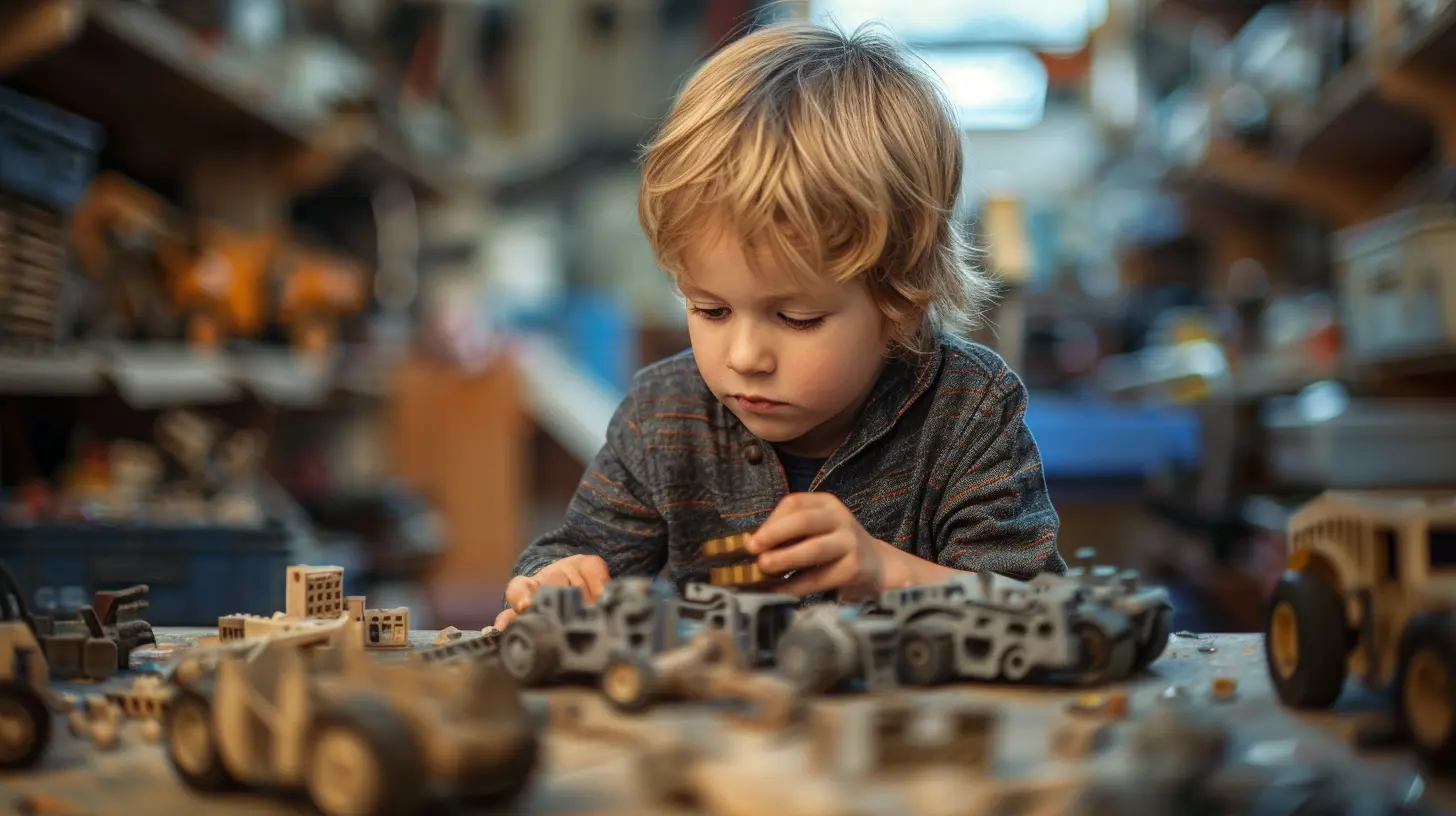The Role of Art in Developing Fine Motor Skills
23 July 2025
When you think about art, you probably picture beautiful paintings, intricate sculptures, or even messy finger paintings from childhood. But did you know that art plays a crucial role in developing fine motor skills? Yep! Every time a child grips a paintbrush, molds clay, or even cuts paper, they’re refining those small muscle movements that help with everyday tasks. Let’s dive into why art is such a powerful tool for fine motor skill development. 
What Are Fine Motor Skills?
Before we get into the nitty-gritty of how art helps, let’s define fine motor skills. These are the small, precise movements we make with our fingers, hands, and wrists. Think about buttoning a shirt, tying shoelaces, holding a pencil, or using scissors—none of it would be possible without well-developed fine motor skills.Kids start refining these skills from a young age, and their development is crucial for daily activities, academic success, and even social interactions. And guess what? Art is one of the best (and most fun) ways to strengthen these skills! 
How Art Enhances Fine Motor Skills
Art allows kids to engage in various hands-on activities that strengthen their hand-eye coordination, dexterity, and grip strength. Let’s break it down into specific artistic activities and how they support motor development.1. Drawing and Coloring
Ever noticed how kids clutch a crayon or pencil with a tight little grip? That’s their fine motor skills at work! When children draw or color, they’re not just creating a masterpiece; they’re learning how to control their hand movements.- Holding crayons or markers strengthens the hand muscles.
- Staying within the lines in a coloring book improves precision and coordination.
- Requiring different levels of pressure on paper refines wrist and finger control.
2. Painting
Painting might seem like just a fun, messy activity, but it’s actually doing wonders for motor skills. Whether using a paintbrush, sponge, or even fingers, here’s how painting helps:- Holding and maneuvering a paintbrush strengthens grip control.
- Mixing colors encourages hand movement and coordination.
- Finger painting enhances tactile awareness and sensory development.
3. Cutting and Gluing
Scissors might seem scary for little hands, but learning to use them is a huge milestone in fine motor development. Cutting and pasting artwork teaches kids:- Hand strength and control as they open and close scissors.
- Bilateral coordination (using both hands together), which is essential for tying shoes or using a knife and fork.
- Precision when placing glue and assembling pieces.
4. Clay and Playdough Sculpting
If you’ve ever played with playdough, you know how satisfying it is to squish, roll, and mold. But beyond the fun, clay sculpting is a powerhouse for motor skill development.- Rolling and shaping clay strengthens finger muscles.
- Pinching and pressing improve dexterity.
- Using tools like plastic knives, rollers, or stamps enhances hand control.
5. Beading and Threading
Stringing beads onto a thread may look like a simple task, but it requires an incredible amount of focus and coordination. How does this activity help?- Strengthens finger grip and hand control.
- Enhances hand-eye coordination as kids thread beads through small holes.
- Improves patience and concentration, which also benefits learning in other areas. 
The Connection Between Fine Motor Skills and Academic Success
Fine motor skills aren't just useful for arts and crafts; they lay the foundation for essential academic skills like writing, typing, and even math. Kids who struggle with fine motor control might find it challenging to hold a pencil properly, form letters, or even turn pages in a book.By engaging in artistic activities regularly, children build the muscle strength and coordination needed for classroom tasks. Plus, hands-on creativity boosts confidence, problem-solving skills, and overall cognitive development. 
How Parents and Teachers Can Encourage Art for Motor Development
Want to help your child develop strong fine motor skills? Here are some easy ways to incorporate art into daily routines:Provide a Variety of Art Supplies
Give kids access to different materials—crayons, markers, paint, scissors, glue, beads, and playdough. The more variety they have, the more muscles they’ll engage.Make Art Time Fun, Not Forced
Let kids explore and be creative without worrying about making something “perfect.” The goal isn’t a masterpiece—it’s skill development!Encourage Hands-On Exploration
Instead of just coloring in a book, encourage activities like:- Finger painting
- Tearing paper for collages
- Using stamps and sponges
Use Everyday Objects for Art
You don’t always need fancy supplies. Cotton swabs, chopsticks, leaves, and even kitchen sponges can make fantastic art tools that also work on fine motor skills.Be Patient and Supportive
Developing fine motor skills takes time, and every child learns at their own pace. Praise their efforts rather than the outcome, and celebrate their progress!Final Thoughts
Art isn’t just about creativity—it’s a hidden workout for little hands! Through painting, cutting, sculpting, and threading, kids strengthen the muscles they need for everyday tasks. Plus, artistic activities make learning engaging and fun, keeping kids excited about practicing their skills.Whether at home or in the classroom, incorporating art into daily routines is a fantastic way to support children’s development. So, grab those paints, pull out the playdough, and let the creativity (and skill-building) begin!
all images in this post were generated using AI tools
Category:
Art EducationAuthor:

Olivia Lewis
Discussion
rate this article
1 comments
Mira Lopez
This article beautifully highlights the profound impact of art on fine motor skills development. It reminds us of the importance of creativity in nurturing young minds and enhancing their coordination. Thank you for sharing this inspiring perspective!
August 11, 2025 at 11:24 AM

Olivia Lewis
Thank you for your thoughtful comment! I'm glad you found the article inspiring and that it resonated with the importance of creativity in child development.


